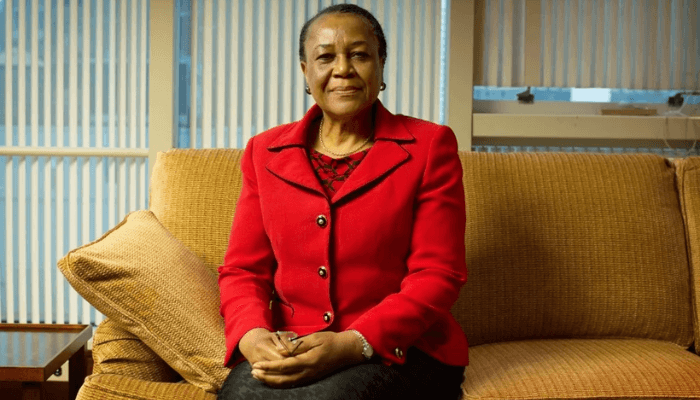Joy Ogwu, Nigeria’s first female UN ambassador, global peace advocate, dies at 79
Joy Ogwu, Nigeria’s first female UN ambassador, global peace advocate, dies at 79
When ambassador Joy Uche Angela Ogwu walked into the United Nations headquarters in New York in 2008 as Nigeria’s first female Permanent Representative, she carried with her not just a country’s flag but the quiet confidence of a scholar who understood power and how to use it with purpose.
Ogwu, who died on Monday in New York at the age of 79, was more than a diplomat. She was a professor, scholar, minister and global stateswoman, whose life was defined by excellence, intellect and service. She didn’t just represent Nigeria abroad, she was in many ways the embodiment of the country’s aspirations on the world stage, calm, persuasive and principled.
Read also: Nigeria’s UN Ambassador assumes duty in New York
A trailblazer in diplomacy
Born on August 22, 1946, Ogwu’s rise through Nigeria’s diplomatic and academic ranks was remarkable. She was the first woman to serve as Nigeria’s Permanent Representative to the United Nations, a position she held with distinction from 2008 to 2017. During that time, she twice presided over the UN Security Council, in July 2010 and October 2011, leading deliberations on global peace and security with grace and authority.

Before that, she had served as Nigeria’s Minister of Foreign Affairs under former president Olusegun Obasanjo, appointed in August 2006. In both roles, she combined a scholar’s discipline with a stateswoman’s tact.
“She projected Nigeria’s voice with clarity and purpose,” president Bola Tinubu said in a tribute, describing her as “a trailblazer who rose to the highest level of her vocation through excellence and hard work.”
Read also: Madagascar plunges into chaos as Gen Z uprising drives president into hiding
From classroom to the global stage
Ogwu’s story began in academia. After earning her bachelor’s and master’s degrees in political science from Rutgers University in the United States, she obtained a PhD from the University of Lagos in 1977.
That same year, she joined the Nigerian Institute of International Affairs (NIIA), the country’s premier foreign policy think tank, where she would eventually become the first female Director-General.
Her early career also took her through the National War College in Lagos and the National Institute for Policy and Strategic Studies (NIPSS) in Kuru, near Jos, where she lectured in international politics and strategy. Her scholarship was both deep and visionary. In her 1986 book Nigerian Foreign Policy: Alternative Futures, she explored new directions for Nigeria’s engagement with the world, particularly the potential of South–South cooperation between Africa and Latin America.
Global leadership and women’s advocacy
At the United Nations, ambassador Ogwu became a respected voice for peace, disarmament and gender equality. She served as chair of the board of trustees of the UN Institute for Disarmament Research (UNIDIR) and later as president of the executive board of UN Women, the UN entity dedicated to gender equality and women’s empowerment.
Her colleagues recall her as a calm negotiator who believed diplomacy was not about posturing but about persuasion. “Nigeria at independence enunciated principles which were also in consonance with the principles established by the founders of the United Nations in 1945,” she once said at a reception for Small Island States. “We have not deviated from those principles in our foreign policy.”
An enduring legacy
Throughout her long career, Ogwu combined intellect with quiet strength. She was widely regarded as a “core foreign affairs technocrat” one who rose not through politics, but through scholarship, competence and an unshakable commitment to Nigeria’s global standing.
Read also: Ex-EPL referee David Coote pleads guilty to child indecent image offence
Her leadership earned her the Emeka Anyaoku Lifetime Achievement Award as Nigeria’s Outstanding International Icon from the Hallmark of Labour Foundation, which described her as “an accomplished scholar, diplomat and administrator who served Nigeria and the international community with quiet dignity and a sense of mission.”
She is survived by her five children, grandchildren, siblings and a nation grateful for her service.
In her passing, Nigeria has lost more than a diplomat; it has lost a symbol of what is possible when intellect, integrity and patriotism meet. Ogwu may have left the world stage, but her voice, and the vision she championed for Nigeria, will long echo in the chambers of diplomacy.

